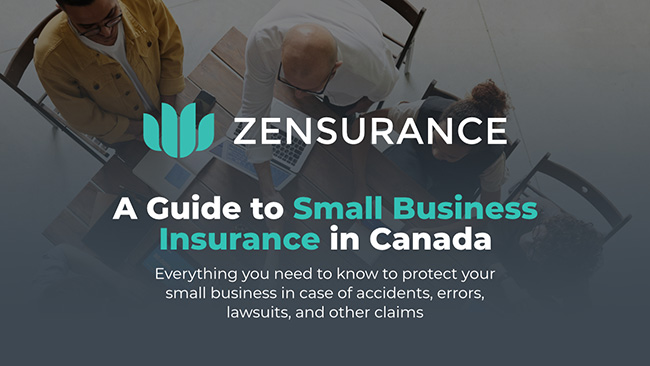As an entrepreneur, navigating the financial challenges of growing a small business is a common and unending task.
Pursuing additional funds to reinvest in your company can be crucial in expanding your business and ensuring its financial health. Small business grants offer a valuable avenue for securing the economic boost your company needs.
Grants can fuel growth, empowering you to enhance competitiveness and seize new opportunities. Incorporating grant applications into your business strategy is a proactive step towards achieving your company’s full potential.

What Is a Small Business Grant?
A small business grant is a financial award provided to small businesses by government agencies, non-profit organizations, or private companies.
They are intended to support specific business activities, such as research and development, business expansion, job creation, or community development, and foster economic growth, innovation, and entrepreneurship.
Obtaining a small business grant involves a competitive application process. Businesses must meet specific eligibility criteria, provide a detailed proposal outlining how the funds will be used, and demonstrate the potential impact on the business and the community.
Download Our FREE Insurance Guide
Learn everything you need to protect your small business.
Whitepaper download
"*" indicates required fields
Your email address will be used by Zensurance to provide latest news, offers and tips.
You can unsubscribe at any time.

How Much Money Does a Grant Provide?
Grants can vary depending on the available type. They may range from a couple of thousand dollars to tens of thousands. The grant size you’re eligible for depends on the number of employees you have, your industry, and your annual sales.
While grants are free money, you should report them when filing taxes. The Canada Revenue Agency says grants generally increase your income or reduce expenses. For example, if your business gets a grant to hire students, it can be deducted from the wage expenses being claimed. If you have any questions, it’s best to speak with a tax professional.
Related Posts
Categories
Business Grant vs Business Loan: What’s the Difference?
A grant is a gift from the government or an organization. It doesn’t need to be paid back, and there are no interest payments. In essence, it’s free money. Grants are typically used for hiring, training, research and development, or expansion.
A loan is often received from a bank or credit union and sometimes from a government institution. A loan must be paid back, and interest payments must be made. Loans are usually used for equipment, software, and everyday operating costs.
8 Grants for Canadian Small Businesses
Here are eight grants Canadian small business owners, entrepreneurs, and startups can apply for to fund their growth:
1. Zensurance Small Business Grant
The Zensurance Small Business Grant is available to Canadian small businesses, startups, self-employed professionals, and entrepreneurs.
It’s a $10,000 grant designed to help small businesses in any industry grow. Only one small business owner or entrepreneur will win the funds based on their application. The application deadline is October 31, 2023, and a winner will be announced on December 1, 2023.
2. CanExport
CanExport provides two funding opportunities for small and medium-sized companies looking to grow internationally. The CanExport SMEs program offers up to $50,000 for export marketing of your products or services in international markets. The CanExport Innovation program provides up to $75,000 to help with research and development for a single technology.
3. National Research Council of Canada Industrial Research Assistance Program (NRC IRAP)
The NRC IRAP is designed for small and medium-sized companies pursuing technology-driven innovation. Also, its Youth Employment Program provides financial assistance to offset the cost of hiring young talent to work on projects with research and development, engineering, multimedia or market analysis components or to help develop a new product or process.
4. Canada Job Grant
This grant helps cover the cost of training for new and existing employees. Funding is provided by the federal government but delivered by the province or territory. It’s available everywhere in the country except Quebec. The grant’s size varies based on your company’s size and what the province or territory offers.
5. NGen Manufacturing Canada
The Next Generation (NGen) Manufacturing Canada grant provides Canadian manufacturers and technology providers funds to support the development and adoption of new manufacturing processes that can be commercialized.
5. Student Work Placement Program
This program provides companies with wage subsidies when they hire post-secondary students. Your company can get $5,000 for every student hired through the program or $7,000 for every student in their first year or if they’re from an underrepresented group.
6. Strategic Innovation Fund
Innovation, Science and Economic Development Canada offers the Strategic Innovation Fund to for-profit and not-for-profit organizations. There are two categories: business innovation and growth help for-profit businesses to invest, grow, and create jobs, and collaborations and networks is designed to help for-profit and not-for-profit organizations with business-led projects where Canada has a demonstrated advantage.
7. Canada Digital Adoption Program (CDAP)
Launched in early 2022, the CDAP helps companies grow their businesses online with a grant of up to $2,400 (the ‘Grow Your Business Online’ grant) or improve their business technology with funding of up to $15,000 (the ‘Boost Your Business Technology’ grant). Applicants who qualify for the latter can also access zero per cent interest loans of up to $100,000 from the Business Development Bank of Canada and a wage subsidy of up to $7,300 to hire post-secondary students and recent graduates.
8. Save on Energy Small Business Program
This program is designed to help offset the costs of energy-efficient equipment upgrades for Ontario-based businesses. The Save on Energy incentives are up to $2,000 for eligible lighting equipment and $2,500 for eligible non-lighting equipment.
These are just a few grant programs for Canadian small and medium-sized businesses.
You can find others by doing a quick online search. For example, use the Government of Canada’s Business Benefits Finder to look for funding specific to your province, territory, and industry. There are also small business grants available exclusive to Canadian women entrepreneurs.
Do I Need Small Business Insurance to Qualify for a Grant?
While business insurance isn’t needed to qualify for a grant, there are many reasons to get coverage for your company or startup.
If you advise a client that results in them suffering financial or reputational harm, or if you make a mistake that costs your customer a large sum, you’ll need professional liability insurance to provide you with funds to defend yourself and settle the matter.
Or, suppose you have a client injured on your premises or a product you sell causes harm to a customer or damages their property. In that case, commercial general liability insurance would be needed to pay for third-party bodily injuries or property damage and your legal defence costs.
Fill out our online application for a free insurance quote. Through our partner network of over 50 insurance providers, our brokers can find the low-cost policy you need and customize it to suit your business.
Sign Up for ZenMail
"*" indicates required fields
Recent Posts
How to Prevent Phishing Attacks
Phishing attacks are among the most pervasive cyber-attacks against small businesses and independent professionals. Learn more about it and how to prevent your company from falling prey to it.
Zensurance Business Grant Winner 2024: Down East Dance Academy
Meet our $10,000 and $1,000 small business grant winners, their advice for other business owners and entrepreneurs, and why insurance is an essential part of their financial wellness.
5 Common Winter Business Insurance Claims
Accidents and mishaps leading to insurance claims can happen to any business owner at any time, but winter weather can raise the stakes considerably. Here are five wintertime claims our clients had to contend with and how their insurance coverage helped them recover.








